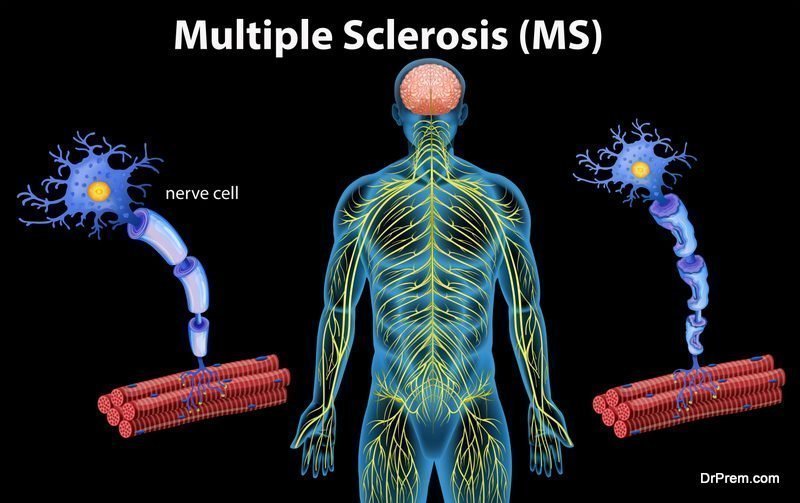The central nervous system is responsible for more than you may think. In fact, your central nervous system controls most functions of the body and mind. The nervous system is comprised of both the brain and the spinal cord. This connection supports not only physical but cognitive function as well, which is why nervous system disorders are so serious. When you experience damage to your nervous system or are diagnosed with a disorder or condition, finding help is crucial. While some conditions can’t be reversed, others can be treated. A neurologist specialist is trained in diagnosing and treating these types of conditions. Read on to discover 3 of the most common nervous system disorders and the effects they have on patients.
1. Alzheimer’s Disease
 Alzheimer’s disease affects an estimated 5.7 million Americans. It’s a sad and crippling disorder that affects a person’s cognitive and brain function, memory, mood, behavior, and physical abilities. Because Alzheimer’s disease is a progressive disorder, it gets worse with time. It’s also incurable. Alzheimer’s disease is one type of dementia. It’s unknown if dementia causes the death of brain cells or if the death of brain cells causes dementia. Because the cause is unknown, there is no way to prevent or cure the disease, but simply manage symptoms and try to offer patients a quality life.
Alzheimer’s disease affects an estimated 5.7 million Americans. It’s a sad and crippling disorder that affects a person’s cognitive and brain function, memory, mood, behavior, and physical abilities. Because Alzheimer’s disease is a progressive disorder, it gets worse with time. It’s also incurable. Alzheimer’s disease is one type of dementia. It’s unknown if dementia causes the death of brain cells or if the death of brain cells causes dementia. Because the cause is unknown, there is no way to prevent or cure the disease, but simply manage symptoms and try to offer patients a quality life.
As the person’s brain function deteriorates, so does their physical capacity, which means they’re often unable to care for themselves. Not only is Alzheimer’s disease difficult for sufferers but it can be traumatizing for family members and friends close to the person. Often times, Alzheimer’s patients forget who they are, who their loved ones are, where they are, and suffer from extreme mood swings. This can make them agitated and aggressive toward others. In many cases, Alzheimer’s is terminal, causing death as a person’s cognitive and physical abilities deteriorate beyond repair.
2. Epilepsy
 Epilepsy is a very serious and very scary neurological disorder that causes major sensory disturbances in patients. This may result in seizures (also known as convulsions) and loss of consciousness due to abnormal brain activity. Sadly, epilepsy is extremely common, affecting more than 50 million people worldwide. Diagnosis is determined based on the number of unprovoked seizures a person experiences within a certain period of time. Most epileptic episodes are unprompted and unexplained, with no specific or apparent cause. Certain medications can help control epilepsy symptoms and a specialist may offer alternative treatment options.
Epilepsy is a very serious and very scary neurological disorder that causes major sensory disturbances in patients. This may result in seizures (also known as convulsions) and loss of consciousness due to abnormal brain activity. Sadly, epilepsy is extremely common, affecting more than 50 million people worldwide. Diagnosis is determined based on the number of unprovoked seizures a person experiences within a certain period of time. Most epileptic episodes are unprompted and unexplained, with no specific or apparent cause. Certain medications can help control epilepsy symptoms and a specialist may offer alternative treatment options.
3. Multiple Sclerosis (MS)
 Multiple sclerosis, or MS, is a chronic, progressive disease where sheaths of the nerve cells of the brain and spinal cord are damaged. This causes speech impairment, muscle discoordination, blurred vision, numbness of the extremities, and extreme fatigue. Like most other nervous system disorders, the exact cause of MS is unknown, which makes treatment difficult. Multiple sclerosis is also an autoimmune disorder, where the person’s immune system attacks its own tissues instead of working to repair them.
Multiple sclerosis, or MS, is a chronic, progressive disease where sheaths of the nerve cells of the brain and spinal cord are damaged. This causes speech impairment, muscle discoordination, blurred vision, numbness of the extremities, and extreme fatigue. Like most other nervous system disorders, the exact cause of MS is unknown, which makes treatment difficult. Multiple sclerosis is also an autoimmune disorder, where the person’s immune system attacks its own tissues instead of working to repair them.
During this process, the nerve fibers that help protect your brain and spinal cord are attacked and destroyed. Some common symptoms of the disorder include pain, vision impairment, cognitive complications, fatigue, trouble balancing, and tingling and numbness throughout the body. Because there’s no cure for MS, patients are treated using a mix of medications, therapy, and self care.
Your body’s nervous system is a powerful thing. These three disorders drastically affect the way your body and mind function. Although most neurological disorders are incurable, creating a treatment plan with your doctor or specialist can help improve your quality of life.
Article Submitted By Community Writer




